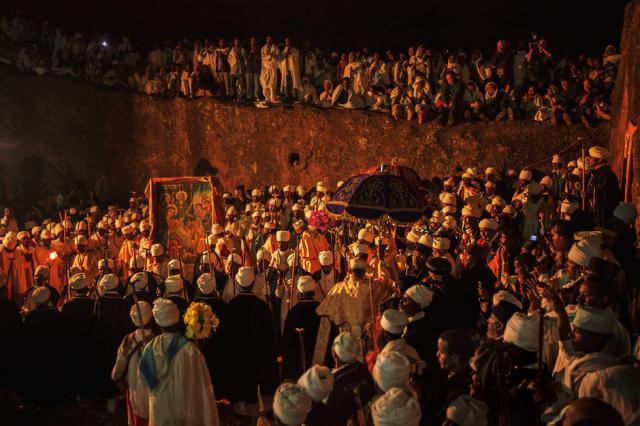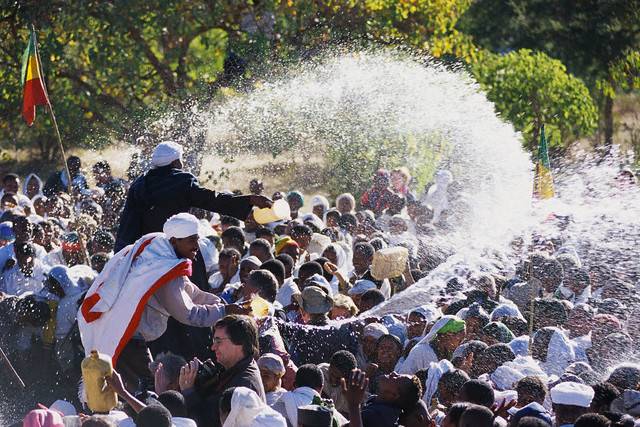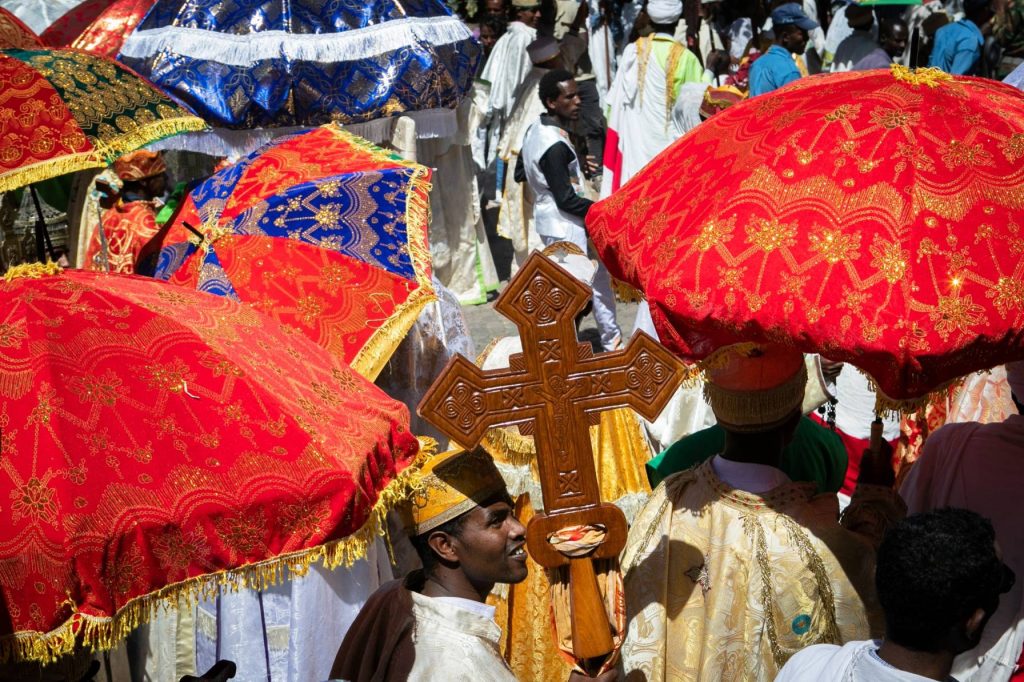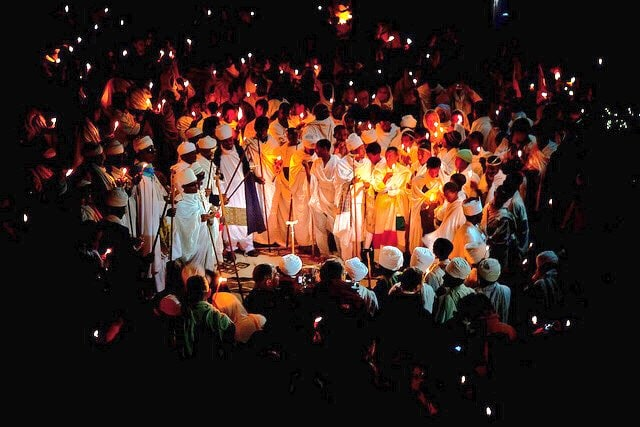Genna (Ethiopian Christmas)
Unlike its Western counterpart, Genna is a solemn yet joyful occasion. The celebration begins with an overnight church service filled with chants and prayer, often ending at dawn. It’s believed that on this holy night, heaven and earth come close together.
In the highlands of Lalibela, thousands of pilgrims in white gather around the rock-hewn churches, creating an awe-inspiring atmosphere of reverence. After Mass, families celebrate with special foods and a traditional game called Genna, similar to field hockey, believed to have been played by the shepherds who heard of Christ’s birth.


Timket (Epiphany)
Timket is perhaps Ethiopia’s most spectacular and photogenic religious festival. Celebrated by Ethiopian Orthodox Christians, it commemorates the baptism of Jesus in the River Jordan. The festivities begin the day before with the procession of the Tabots — sacred replicas of the Ark of the Covenant — carried by priests under colorful, embroidered canopies.
Crowds dressed in pure white gather at rivers or pools, where clergy chant ancient hymns and sprinkle holy water on the faithful. The atmosphere is electric with spirituality and joy. In Gondar, the royal bath fills with water for an early-morning blessing, creating one of the most unforgettable scenes in Ethiopia.
Meskel (Finding of the True Cross)
Celebrating the discovery of the True Cross by Queen Helena in the 4th century, Meskel is one of the most ancient Christian holidays. In cities and villages across Ethiopia, massive Demera bonfires are built and lit at sunset, symbolizing the cross’s revelation.
In Addis Ababa’s Meskel Square, thousands gather in traditional dress to watch the flames rise as choirs sing and priests wave incense. The burning of the cross signifies both purification and renewal. The following day is full of dance, feasting, and joy. It’s not just a religious occasion — it’s a national symbol of unity and hope.


Fasika (Ethiopian Easter)
Fasika is Ethiopia’s Orthodox Easter, and it follows a 55-day fasting period known as Hudade, where no animal products are consumed. When the fast ends, families gather at midnight Mass dressed in white netela cloths, and churches echo with the sounds of drumbeats, ululations, and chants.
After the service, the streets fill with celebration as people return home to break the fast with doro wat (spicy chicken stew), injera, and honey wine or tej. Fasika is less commercial and more spiritually intense than Western Easter, centered on sacrifice, community, and rebirth.

